This page compiles past blog posts which compared 2 or more similar expressions, explaining the difference between/among them.
- XXX vs YYY
~てから vs ~たから
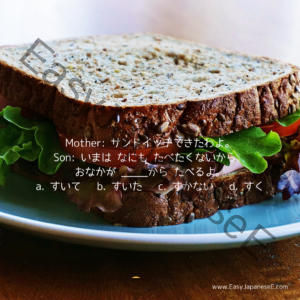
から has many meanings but all beginners need to remember the difference between ~てから and ...
~あと/あとで/あとに/あとは
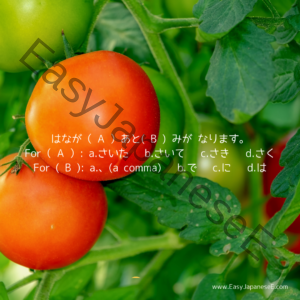
~あと means "after ~" and it is used after a past plain form verb and depending on the particl...
およそ、ぐらい、ごろ、やく

Today's post is about how to say "approximately" in Japanese. Some are used before a number phrase a...
~おき(に) vs ~ごと(に)
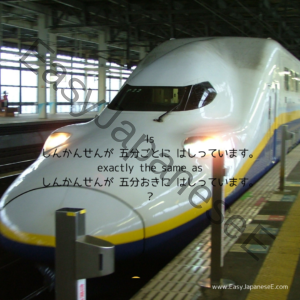
~ごと and ~おき are similar and sometimes they are interchangeable but other times they are ...
しっています vs わかります
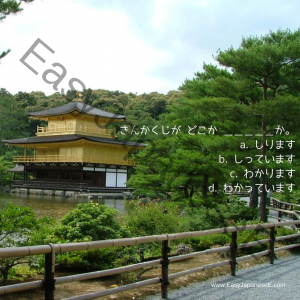
Many English speakers seem to think しっています = to know and わかります = to understand...
にぎやか vs いそがしい
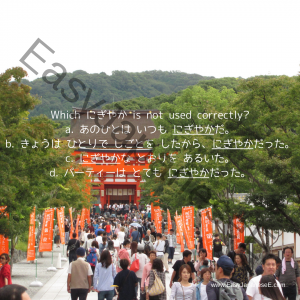
Both にぎやか(な) and いそがしい are usually translated "busy" but the meanings are ve...
~する vs ~している

You had a busy day and you feel tired. Which one would you say to your family when you get<span clas...
大きい vs 大きな
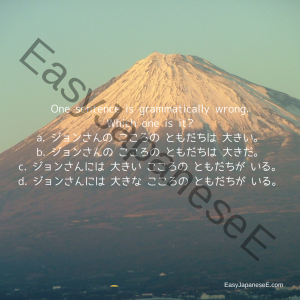
One sentence is grammatically wrong. Which one is it? 大おおきい and 大おおきな both mean ...
~と vs ~とき vs ~たら
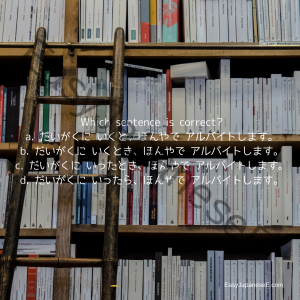
All ~と, ~とき and ~たら can be used for “when ~” but their meanings are quite diff...
さむい vs つめたい
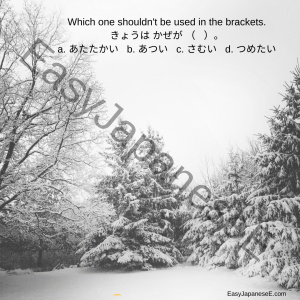
The English word "cold" needs to be distinguished between さむい and つめたい in Japanese. Th...
か vs と vs や

Particles are tricky. This post explains the difference among the particles か, と and や that ar...
会う vs 合う
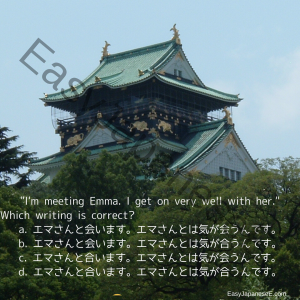
Both 会う and 合う are read as あう and they look alike, so even Japanese native speakers some...
